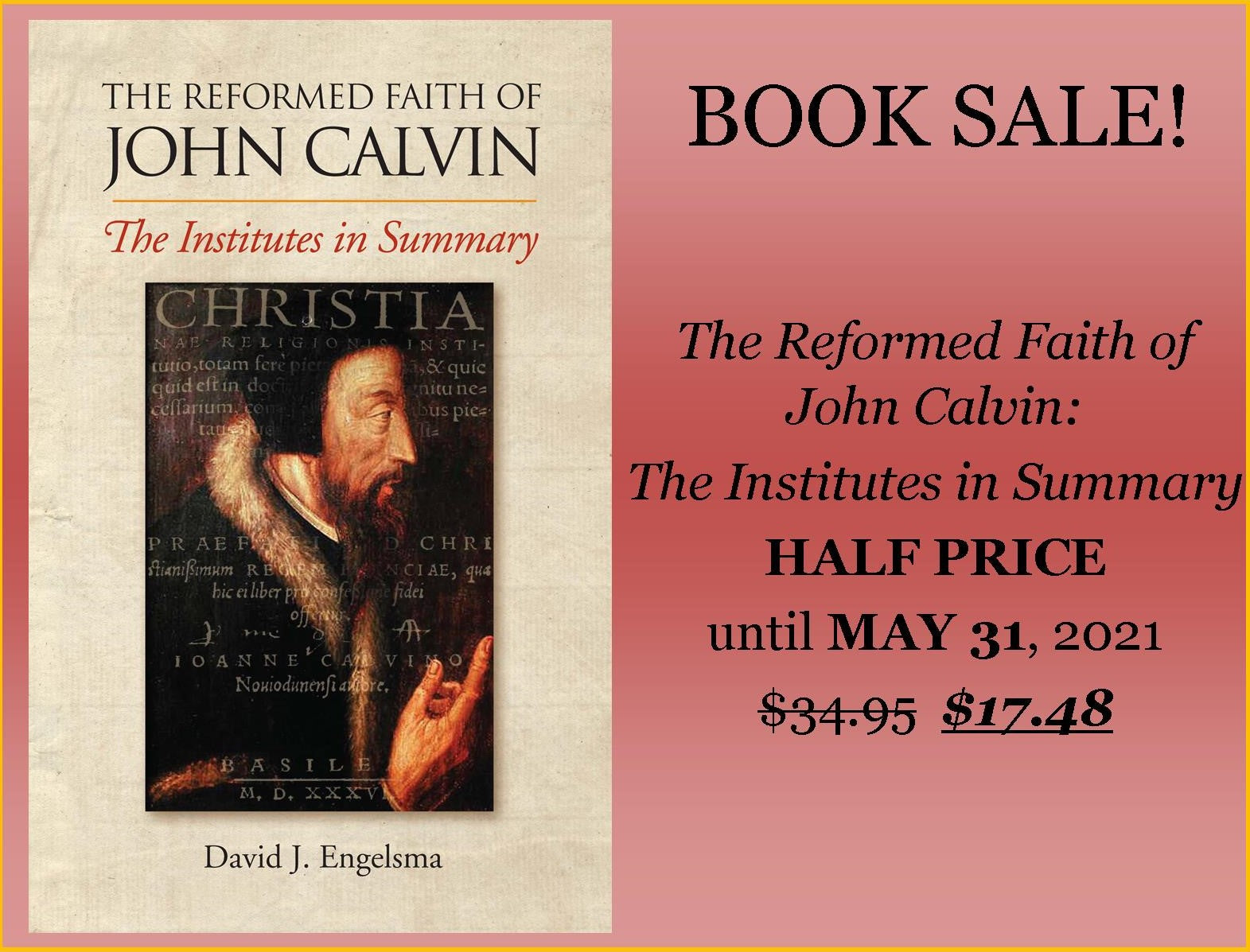Your cart is empty now.

The Reformed Faith of John Calvin
Reading the classics of Christian theology is edifying and important, but it can also be intimidating. The Reformed Faith of John Calvin: The Institutes in Summary is an engaging summary of Calvin's Institutes of the Christian Religion which will help you with your own reading and study of Calvin's voluminous tome.
What follows is an extract from chapter 2 of The Reformed Faith of John Calvin: The Institutes in Summary, by David J. Engelsma, pages 22-23, published by the Reformed Free Publishing Association.
Value of studying the Institutes
The value of the study of the Institutes, especially for the budding theologian, will be that he learns the Reformed faith both with regard to its distinctive doctrines and with regard to its system and unity—the harmonious relation of all the doctrines. This is the faith that must be the content of his preaching and teaching.
He will learn the necessity and nature of a vigorous defense of the Reformed faith against all the false doctrines that threaten it. Some of the errors are the same today as in Calvin’s time, for example, the rejection of infant baptism with the concomitant denial of the oneness of the old covenant and the new covenant (dispensationalism). In these cases, Calvin’s defense of sound doctrine serves the Reformed minister well yet today. Other errors are new. In these cases, new defenses of the faith are called for. But the Institutes demands the defense of the truth, and provides a rich and detailed model.
The seminarian will also learn piety. Reading the Institutes, he will breathe in piety for himself personally, by the working of the Spirit. He will also be trained to teach the doctrines of Scripture in such a way that the fruit of them is the piety of his congregation.
In all of this valuable learning, the student of the Institutes will be rooted and grounded in Holy Scripture. The Institutes is a most biblical book.
Influence of the Institutes
The influence of the Institutes has been enormous, both in the sixteenth century and down the ages to the present time. This has been recognized by foe and friend alike. Will Durant has written this about the influence of the Institutes upon the Reformation and upon the subsequent history of the church: “It is the most eloquent, fervent, lucid, logical, influential, and terrible work in all the literature of the religious revolution.”[1]
John McNeill judged that the Institutes is “one of the few books that have profoundly affected the course of history.”[2] Through the Institutes Calvin is “one of the makers of the modern mind.”[3] “The Institutes became for three centuries the essential textbook of theology in the Reformed churches.”[4]
Benjamin B. Warfield declared, “As the first adequate statement of the positive programme of the Reformed movement, the Institutes lies at the foundation of the whole development of Protestant theology, and has left an impress on evangelical thought which is ineffaceable. After three and a half centuries, it retains its unquestioned preeminence as the greatest and most influential of all dogmatic treatises.” Warfield then quoted the Protestant liberal, Albrecht Ritschl: “There is the masterpiece of Protestant theology.”[5]
Scottish theologian, William Cunningham said, “The ‘Institutio’ of Calvin is the most important work in the history of theological science…and has exerted directly or indirectly the greatest and most beneficial influence upon the opinions of intelligent men on theological subjects.”[6]
The most important influence of the Institutes, in the providence of God, has been upon the Reformation itself and upon the Reformed and Presbyterian churches. The Institutes completed and established the sixteenth-century Reformation of the church. Especially by its strong and pervasive influence on the Reformed confessions, it was used by Christ to form, found, and defend Reformed and Presbyterian churches throughout the world. By the confession and lives of the members of these churches, the Institutes has powerfully affected Western civilization.
1. Will Durant, The History of Civilization, 11 vols. (New York: Simon and Schuster, 1935‑1975), vol. 6 (1957), The Reformation: A History of European Civilization from Wycliff to Calvin, 1300 to 1564, 460. Durant added: “But we shall always find it hard to love this man who darkened the human soul with the most absurd and blasphemous conception of God in all the long and honored history of nonsense.”
2. McNeill, The History and Character of Calvinism, 119.
3. Ibid., 128.
4 Ibid., 234.
5. Warfield, “The Man and His Work,” in Calvin and Calvinism, 8, 9.
6. William Cunningham, “John Calvin,” in The Reformers and the Theology of the Reformation (London: Banner of Truth, 1967), 295.
_______________
CLICK THE IMAGE BELOW TO BUY THE DISCOUNTED BOOK
DISCOUNT APPLIED AT CHECKOUT
The content of the article above is the sole responsibility of the article author. This article does not necessarily reflect the opinions and beliefs of the Reformed Free Publishing staff or Association, and the article author does not speak for the RFPA.

Donate
Your contributions make it possible for us to reach Christians in more markets and more lands around the world than ever before.
Select Frequency
Enter Amount











